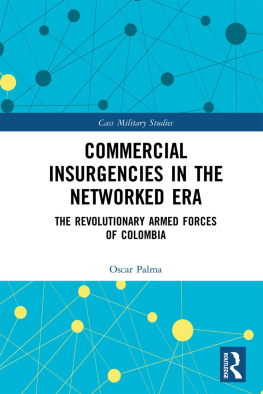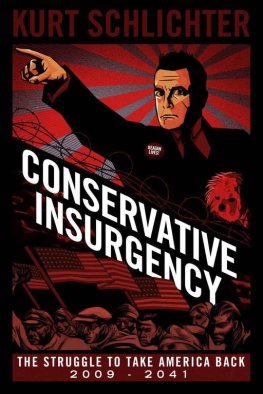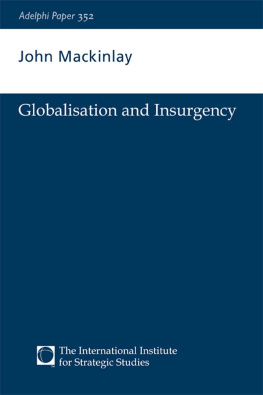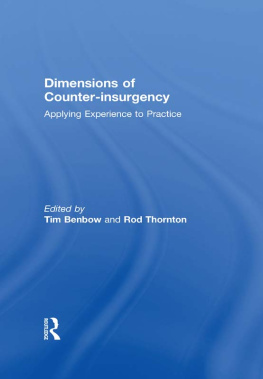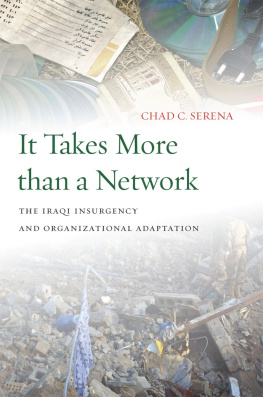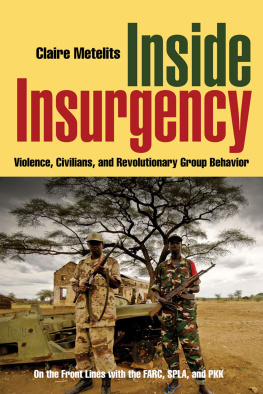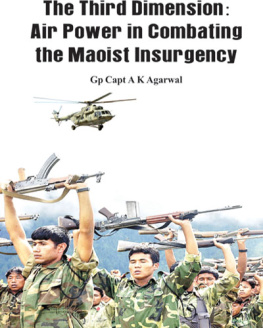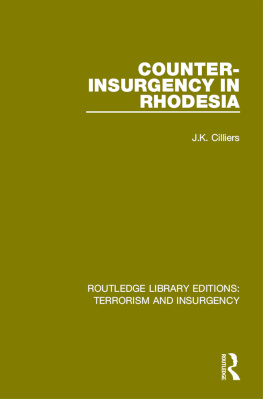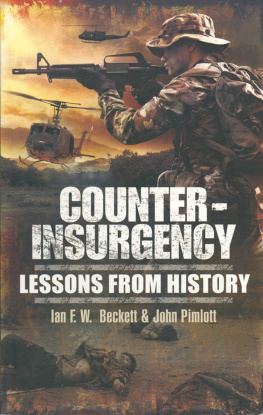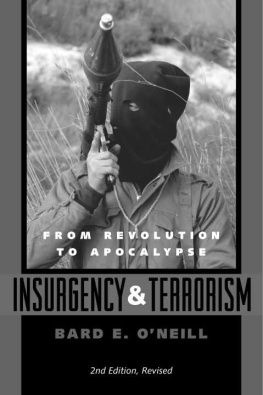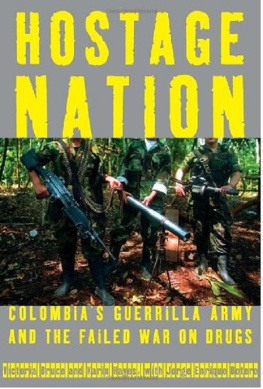Commercial Insurgencies in the Networked Era
This book examines the Revolutionary Armed Forces of Colombia (FARC) as a commercial insurgency through the network-complex paradigm of insurgency.
Countering traditional perspectives of the group, it proposes new and comprehensive explanations for the FARCs presence in Latin America. Existing narratives have portrayed the FARC as a terrorist, narco-terrorist, or criminal organisation a narrative popularised by the government offensive conducted by the Colombian state during the last couple of decades. In contrast, this book goes beyond simplistic perspectives of the FARC and instead studies the group in relation to the network-complex paradigm of insurgency. It explains the organisation as a commercial insurgency with three dimensions political, criminal, and military and understands the Colombian insurgency not as a monolith, but as a system of individuals with diversified interests ranging from the highly indoctrinated to the profit-motivated. This examination allows for an analysis of some of the insurgencys most unexplored characteristics: an interest in urbanizing its actions and the increased invisibility of combatants, the significance of its political institutions, and the construction of its transnational networks. The volume also discusses the future of FARC in post-conflict Colombia, not only within the country, but as an actor in the region.
This work will be of much interest to students of insurgencies, military studies, Latin American studies, criminology, security studies, and IR.
Oscar Palma is Assistant Professor in the Department of Political Science and International Relations at the Universidad del Rosario, Colombia, and has a PhD in International Relations, from the LSE.
Cass Military Studies
Special Operations Forces in the 21st Century
Perspectives from the Social Sciences
Edited by Jessica Glicken Turnley, Kobi Michael and Eyal Ben-Ari
Civilians and Warfare in World History
Edited by Nicola Foote and Nadya Williams
The Military and Liberal Society
Societal-Military Relations in Western Europe
Tomas Kucera
Israel, Strategic Culture and the Conflict with Hamas
Adaptation and Military Effectiveness
Niccol Petrelli
War and Strategy in the Modern World
From Blitzkrieg to Unconventional Terrorism
Azar Gat
Military Strategy of Small States
Responding to External Shocks of the 21st Century
Hkan Edstrm, Dennis Gyllensporre and Jacob Westberg
Western Military Interventions after the Cold War
Evaluating the Wars of the West
Edited by Marek Madej
Countering Insurgencies and Violent Extremism in South and South East Asia
Edited by Shanthie Mariet DSouza
Commercial Insurgencies in the Networked Era
The Revolutionary Armed Forces of Colombia
Oscar Palma
For more information about this series, please visit: https://www.routledge.com/Cass-Military-Studies/book-series/CMS
Commercial Insurgencies in the Networked Era
The Revolutionary Armed Forces of Colombia
Oscar Palma
First published 2019
by Routledge
2 Park Square, Milton Park, Abingdon, Oxon OX14 4RN
and by Routledge
52 Vanderbilt Avenue, New York, NY 10017
Routledge is an imprint of the Taylor & Francis Group, an informa business
2019 Oscar Palma
The right of Oscar Palma to be identified as author of this work has been asserted by him in accordance with sections 77 and 78 of the Copyright, Designs and Patents Act 1988.
All rights reserved. No part of this book may be reprinted or reproduced or utilised in any form or by any electronic, mechanical, or other means, now known or hereafter invented, including photocopying and recording, or in any information storage or retrieval system, without permission in writing from the publishers.
Trademark notice : Product or corporate names may be trademarks or registered trademarks, and are used only for identification and explanation without intent to infringe.
British Library Cataloguing-in-Publication Data
Names: Palma, Oscar, author.
Title: Commercial insurgencies in the networked era: the Revolutionary Armed Forces of Colombia/Oscar Palma.
Description: Abingdon, Oxon; New York, NY: Routledge, 2019. | Series: Cass military studies | Includes bibliographical references and index.
Identifiers: LCCN 2018046805 (print) | LCCN 2018053157 (ebook) | ISBN 9781351175098 (Web PDF) | ISBN 9781351175081 (ePub) | ISBN 9781351175074 (Mobi) | ISBN 9780815374909 (hardback) | ISBN 9781351175104 (e-book)
Subjects: LCSH: Fuerzas Armadas Revolucionarias de Colombia. | InsurgencyColombia. | GuerrillasColombia. | Social networksPolitical aspectsColombia. | TransnationalismPolitical aspectsColombia. | CrimePolitical aspectsColombia. | ColombiaPolitics and government1974- | ColombiaRelations.
Classification: LCC F2279 (ebook) | LCC F2279 .P354 2019 (print) | DDC 355.02/1809861dc23
LC record available at https://lccn.loc.gov/2018046805
Library of Congress Cataloging-in-Publication Data
A catalog record has been requested for this book
ISBN: 978-0-8153-7490-9 (hbk)
ISBN: 978-1-351-17510-4 (ebk)
Typeset in Times New Roman
by Deanta Global Publishing Services, Chennai, India
To my parents and closest friends
Contents
To all of those who contributed to my doctoral dissertation, most especially to my supervisor Christopher Coker and Razeen Sally, Fawaz Gerges, Mauricio Rodriguez, Virginia Contreras, Sergio Jaramillo, Cynthia Arnson, Thomas Marks, David Spencer, Alejandro Arbelaez, Carlos Ospina, Leonardo Tique, Rocio Cruz, Cesar Castao, Eliana Sanabria, Lucho, Alejandra Ripoll, Jorge Ignacio Calixto, Rodrigo Paris, Wilmer Castro Soteldo, Cristian Garay, Gonzalo Montaner, Adolfo Vera, Luis Villamarin, Fernando Egaa, Indira de Pea, Natalia Cobo, Andres Molano, Alicia La Rotta, Anibal Romero, Carlos Romero, Tania Roja, Hernando Torrez-Fernandez, Luis Giacoma Macchiavello, Ramon Diego Abasolo, Adolfo Vera, Alejandro Arevalo, Domingo Marileo, Israel Aillapan, Juan Luis Cordova, Liza Zuiga, Ronal Rodriguez, Rafael Arraiz, Jacob Parakilas, Caroline Varin, Nick Srnicek, Janel Smith, Samuel Jones, Alejandro Sanchez, Valentina Gracia, Lwiding Perez, and Juan Diego Crdenas. To Juan Sebastian Hernandez for his great support in the edition of the final text for this book.
I am also grateful to those who contributed with my initial engagement on PhD studies including Geoff Berridge, Eduardo Barajas, Sandra Borda, Vicente Torrijos, and Stephanie Lavaux.
Special acknowledgements to the Perry Centre for Hemispheric Defense Studies-National Defense University, whose networks were vital for my field research, and to the Agencia para la Reincorporacin y Naturalizacin for their support in achieving the interviews with FARCs former combatants, and in particular to Linea Perea, Nelson Sarria, Jaime Cortes, and Paula Parra.
It was a rainy Saturday morning in Bogot, Colombia in 2005. Dressed up in a suit, I was standing outdoors in a long line of more than a thousand people who were applying to become professional Commissioned Officers of the National Army. This happens once or twice every year in order to incorporate professional of several disciplines into the Force. Lawyers, doctors, engineers, psychologists, economists, and social scientists participate in a competitive selection process to work for the Army in their own areas. Waiting in line to enter an examination room, I noticed the flags at the entrance of the Cadet School, where the whole process was being completed. Contrary to what should be normal, they were flying half-mast. A couple of days ago several soldiers had been killed by the Revolutionary Armed Forces of Colombia (FARC).

